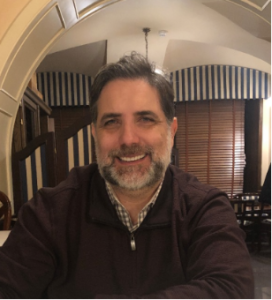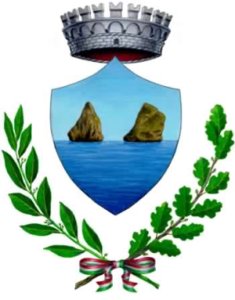Physics Informed Neural Networks and Theory of Functional Connections: Applications to Space Guidance and Control
Prof. Roberto Furfaro
Professor and Deputy Director of Space Defense, Security & Sustainability Center
Department of Systems and Industrial Engineering
Department of Aerospace and Mechanical Engineering
University of Arizona
Abstract
Since the first paper from Raissi, Perdikaris & Karniadakis (2019, Journal of Computational Physics), there has been a lot of interest in pursuing the development and applications of Physics-Informed Neural Networks (PINN) to solving ODEs and PDEs. Concurrently, in the aerospace world, there has been an increasing need for computational methods that enable autonomy and real-time decision making, calling for the development of new frameworks for the numerical solution of optimal control problems. Here, we discuss the development and implementation of a framework that merges PINN and the Theory of Functional Connections (TFC) to accurately, fastly and efficiently solve optimal control problems for space guidance and contro. TFC has been developed to generate a class of functions that analytically satisfy specified boundary conditions by combining a boundary-free function and problem-specific constrained expressions. PINNs have been recently developed to enforce differential equations arising from the application of physical first-principles to the training of neural networks. The combination of TFC and PINN enables solving ODEs & PDEs by training NNs in a data-driven fashion to minimize the residual in the equations domain while analytically satisfying the BCs for highly accurate solutions. In this talk, we will review the development of the TFC-PINN framework using both shallow and deep approaches to train NNs that approximate open-loop and closed-loop controllers for a large class of optimal control problems. We will demonstrate how such framework can be applied to a variety of problems that arise in the aerospace world and we discuss the potential to employ NNs for real-time guidance and control of space systems.
Biography
 Dr. Furfaro is currently Full Professor, Department of Systems and Industrial Engineering, Department of Aerospace and Mechanical Engineering, University of Arizona. He is also the Deputy Director of the Space, Security, Safety & Sustainability Center (S4C). He obtained a Laurea Degree (M.S. equivalent) in Aeronautical Engineering (1998, University of Rome “La Sapienza”) and a Ph.D. in Aerospace Engineering (2004, University of Arizona). He has a broad range of expertise and research interests and has been working on a numerous and diverse projects including development of guidance navigation and control of planetary landers, systems engineering for close-proximity operations on small bodies, machine learning applications to space situational awareness and G&C for hypersonic vehicles. He has served as PI and Co-PI of numerous high-impact research and development grants with a total amount of funds received by NASA, AFRL and other agencies over the past 15 years exceeding $80M. He published more than 80 peer-reviewed journal papers and more than 200 conference papers and abstracts. Since 2013, he has been appointed technical member of the American Astronautical Society (AAS) Space Flight Mechanics committee and he served as Technical Chair of the 2015 AAS/AIAA Spaceflight Mechanic Meeting (Williamsburg Virginia). He is currently technical member of the AIAA Astrodynamics Committee and the AAS Space Surveillance Committee as well as Associate Editor for IEEE Transactions on Aerospace and Electronic Systems. During phase B-D (2011-2016) of the OSIRIS REx Asteroid Sample Return Mission, he was the systems engineering lead for the Science Processing and Operations (SPOC). He is currently the Target Follow-up WG lead for the NASA NEO Surveyor Mission. For his contribution to the OSIRIS REx mission, the asteroid 2003 WX3 was renamed 133474 Roberto Furfaro. Recently, Prof. Furfaro has been elected the 2021 Da Vinci Fellow at the College of Engineering, University of Arizona. Additionally, Prof. Furfaro has been elected AIAA Associate Fellow, Class 2022 and AAS Fellow, Class 2021.
Dr. Furfaro is currently Full Professor, Department of Systems and Industrial Engineering, Department of Aerospace and Mechanical Engineering, University of Arizona. He is also the Deputy Director of the Space, Security, Safety & Sustainability Center (S4C). He obtained a Laurea Degree (M.S. equivalent) in Aeronautical Engineering (1998, University of Rome “La Sapienza”) and a Ph.D. in Aerospace Engineering (2004, University of Arizona). He has a broad range of expertise and research interests and has been working on a numerous and diverse projects including development of guidance navigation and control of planetary landers, systems engineering for close-proximity operations on small bodies, machine learning applications to space situational awareness and G&C for hypersonic vehicles. He has served as PI and Co-PI of numerous high-impact research and development grants with a total amount of funds received by NASA, AFRL and other agencies over the past 15 years exceeding $80M. He published more than 80 peer-reviewed journal papers and more than 200 conference papers and abstracts. Since 2013, he has been appointed technical member of the American Astronautical Society (AAS) Space Flight Mechanics committee and he served as Technical Chair of the 2015 AAS/AIAA Spaceflight Mechanic Meeting (Williamsburg Virginia). He is currently technical member of the AIAA Astrodynamics Committee and the AAS Space Surveillance Committee as well as Associate Editor for IEEE Transactions on Aerospace and Electronic Systems. During phase B-D (2011-2016) of the OSIRIS REx Asteroid Sample Return Mission, he was the systems engineering lead for the Science Processing and Operations (SPOC). He is currently the Target Follow-up WG lead for the NASA NEO Surveyor Mission. For his contribution to the OSIRIS REx mission, the asteroid 2003 WX3 was renamed 133474 Roberto Furfaro. Recently, Prof. Furfaro has been elected the 2021 Da Vinci Fellow at the College of Engineering, University of Arizona. Additionally, Prof. Furfaro has been elected AIAA Associate Fellow, Class 2022 and AAS Fellow, Class 2021.





